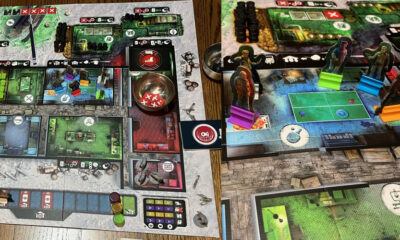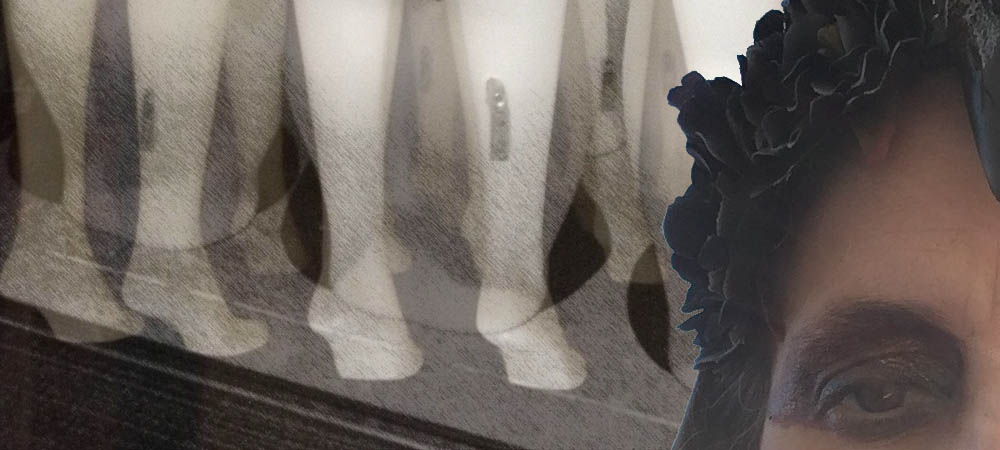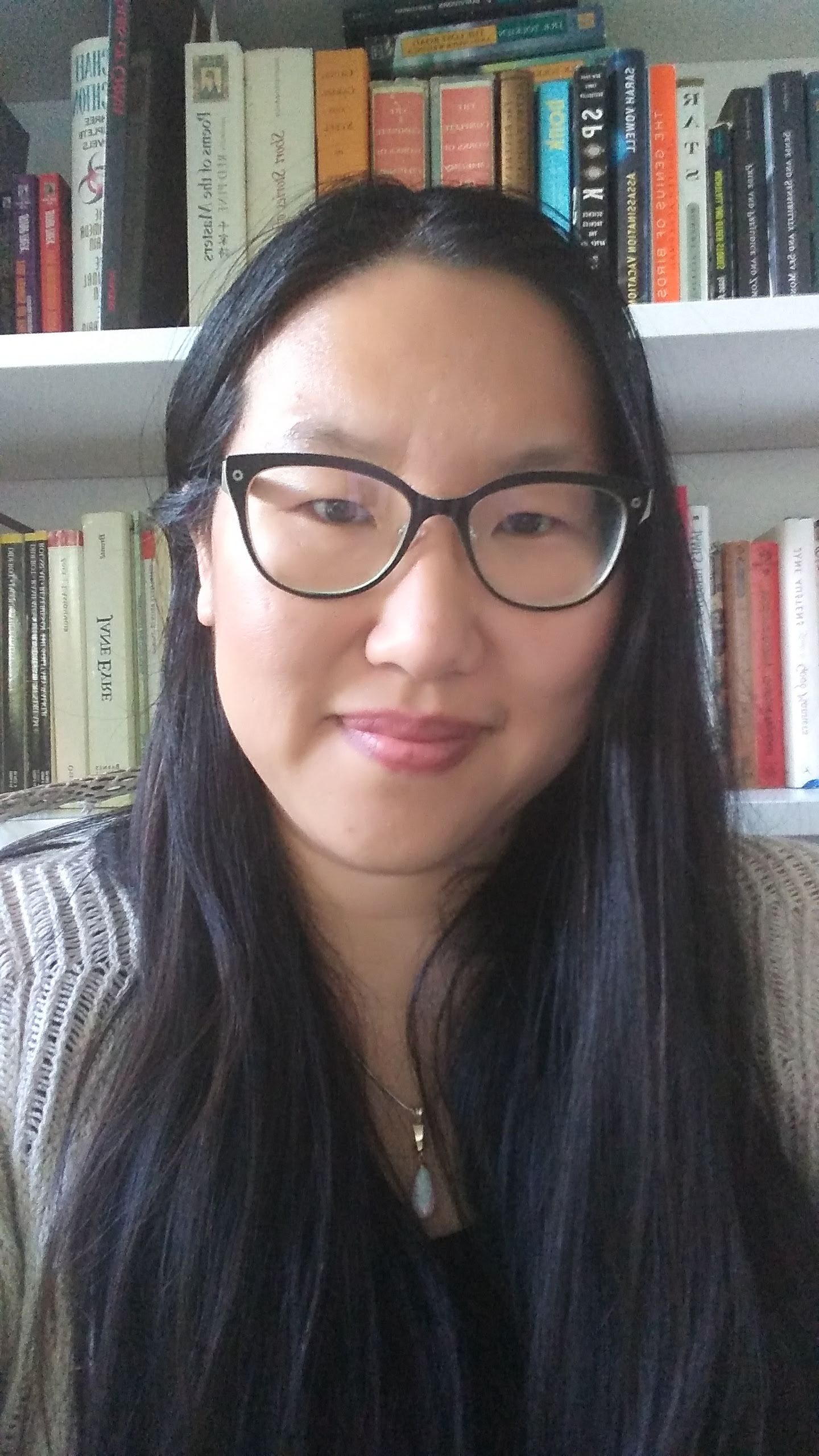
Haunted MTL Original – Awakening – Frances Ippolito
More Videos
Published
5 years agoon
By
Shane M.“Awakening” by Frances Ippolito
Chum enjoyed death more than anything else.
Particularly, he enjoyed the many deaths he had personally secured. Chum was prideful in this regard. Not of his numbers, but because he practiced an equality of opportunity, excluding no one. All of his predecessors had had some preference, some gravitation towards only women, men, or children, which in the end became the pattern of their undoing. Chum chose not to discriminate.
Sitting in the corner of a cream-colored kill box, his right index finger caressed a single smooth ceramic tile, one of many that lined the walls from floor to ceiling. This particular box, the ninth, had a single door, no windows, and multiple floor drains in the pearl epoxy floor that emptied into deep soak pits. Above him, steel tracks lined a long side of the ceiling to hang thick, glistening hooks that often suspended fresh kills for bleeding, hiding, and dressing.
Beyond its efficiency for its obvious purpose, the kill box served as a place of truth. In the moments before death, Chum bore witness to confessions, last requests, and regrets. This stolen honesty always gave Chum a heady thrill of intimacy that exceeded any physical knowing he had experienced. To be fair, it wasn’t always this way. The nearly dead gave up a lot of nonsense and gibberish too. For that, partial blame belonged to Chum because he chose his count based on availability not personality. Some people never reflect, even at the end.
Back on the floor, Chum moved to his knees and gently applied upward pressure against the base of the corner tile with the palm of his right hand. The tile shifted slightly up and released from the wall, revealing a small recess large enough to fit one of Chum’s hands reaching inside to a shelf contained within. On the shelf sat a mason jar with three dark chunks floating in a glittery soupy slurry. Beside the jar lay a flat leathery oblong shape that resembled a deflated, folded football.
Chum took out the leathery piece and stroked the desiccated eyebrows, fingered the empty eye sockets, and pinched the thin dry lips. Satisfied with the condition, he placed the dried, pressed face carefully back onto the shelf and pulled out the mason jar. He gave the jar a few rough jerks, swinging it with his whole arm up and down like a drink shaker. He stopped and peered into the jar, watching the eyeballs and tongue swirl and spin with the purple burgundy and silver glitter of the snow globe. A smile spread across his face as his amber eyes moistened with tender recollection. When the glitter and chunks settled, Chum placed the jar back onto the shelf.
Time to close up, he thought. Sighing, he ran a hand through his sandy blonde hair before pulling on his work gloves. Gloved and ready, he grabbed the grout trowel lying next to him on a tarp, and began to seal the corner tile.
###
Ninety minutes later, clean, attractive, but unremarkable in the morning crowd, Chum walked into Kaffee Putsch in his fresh khaki slacks and blue button down dress shirt. His shaggy hair was washed and messily-styled, and the beginnings of a grin stayed chiseled on his face.
As Chum gave his order, his usual medium sea salt “cup de gras,” he scanned the room quickly, without any noticeable pause at any particular subject. This was a reflexive exercise; not a serious effort. Chum did not case in the morning because everyone was expected somewhere. A scheduled 9:30am meeting that “Kim” would run. The pallet of dog food waiting for “Sam” to unload into the store. When missed, these events of accountability easily aroused alarm and inconvenient interest.
So Chum glanced around, but did not plan too deeply about anyone or anything.
Chum could not; however, prevent his mind from doing what it naturally did all the time. Waiting for his drink, Chum pulled out a light green jade ring hanging on a long gold chain that rested under his shirt. He rubbed the ring while his mind played through scenes of death for each living thing in the room.
In these moments, Chum’s mind did not always supply the details for how each death would take place. But he did reliably see final resting positions in this contorted reality. The middle-aged ginger over there, by the window, laid face-down in the toilet with tendrils of her red hair burning a shade brighter from the wetness. That overweight bearded bear of a man, who had squeezed himself into a size too small black AC-DC shirt, looked slumped over to Chum, a few shades grayer, and as swollen and bloated as a raw turkey that had been injected with too much marinade. These visions amused Chum and gave him a sideways connection to the living that, mostly, didn’t result in their immediate passing.
In the midst of this mental mussing, Chum heard a thin, high pitched voice screech, “Chum for a medium cup de gras, salted, with room for cream!”
What a shrill voice! He thought as he cringed inward and reached for the hot paper cup.
“Dale, small Cocoa Revolution with steamed soy and large Napoleon’s cup d’état!” The voice called out.
Chum grimaced at the counter and involuntarily, his shoulders hunched upwards toward his ears as if they could possibly rise high enough to block out the sound. To catch a glimpse of the barista, he moved to the other side of the counter. He only needed a single look to enter her into the early morning death reel humming through his head.
When Chum finally spotted her, he concluded within seconds that the voice was the least underwhelming thing about her.
“Jing-zhe,” according to the tag pinned to her shirt, resembled a brown barrel wrapped in a dirty potato sack. An oversized, baggy long-sleeved flannel shirt draped over her shoulders and fluffed around her body like a soil colored tent suspended from a short pole. Her face held no expression. Drooping almond pale brown eyes, a flat nose, and thin pale lips that conveyed an uncomfortable emptiness more uncanny valley than living person. Chum thought, how ironic that someone so flat and dull could be named “Awakening” in Chinese, the time of Spring when hibernating insects awoke to new life.
Chum waited, but an image of Jing-zhe’s death did not come. For the first time, he had encountered someone so lacking in life that even he (ever the equal opportunist) had no interest in snuffing it out. When the world is abundant in the lushest, ripest plants for picking, Chum could rouse no enthusiasm for a humdrum tumbleweed rolling around in the dust.
Without another glance, Chum turned away to add cream to his drink at the service table. But as soon as he pulled off the top, Chum flung the plastic lid across the floor.
“GAAHH!” Chum shouted, jumping back from the table, knocking over his open cup. Hot brown liquid poured out of the flipped cup, covering the table, dripping to the floor.
Chum backed away from the mess, shoulders shaking, eyes clenched close.
“FUCK! FUCK! FUCK!” Chum chanted repeatedly.
“Sir, are you alright?” A boyish twenty-something year old manager asked.
“THERE’S A FUCKING ROACH IN MY DRINK! WHAT THE FUCK!” Chum screamed.
Though matching the color of the coffee, all could see a wildly articulating blob floating in the middle of the steaming fluid. Upside-down, the cockroach flailed its black legs and antennae, desperately arching to escape death by burning and suffocation. The whole of its body bobbed and twisted in coordination with the exception of a turgid, purse-shaped beige egg sac extending from the abdomen. There, the pulsing and twitching was equally desperate, but entirely independent.
“THIS. IS. YOUR. FAULT!!!” He said each word more forcefully than the last. And with each word, Chum advanced a step closer to the boy. There was no way to mistake Chum’s look as anything but dangerous – eyes dark and his hands raised in bent open claws.
The manager faltered and stumbled backwards, almost tripping. A few of the men in the cafe stiffened. Cell phones were already out and recording.
“Sir, please calm down. It’s just a roach, not a big deal,” the manager coaxed in a trembling voice, having now seen the very lively roach struggling in the brown pool fanning across the table.
Chum didn’t answer. In his mind, he saw his hands wrapped around the boy’s neck, his thumbs pressing up and down across the throat, pushing out the last bit of living breath like emptying the toothpaste from a spent tube. Chum stepped closer and the men in the café frowned deeper.
Suddenly, a high pitched breaking voice called out, “Medium Red October for Len.”
Chum cringed. That sound! A jarring unpleasant shiver slithered down his spine, a discomfort great enough to propel himself out of his mind, back into the room with the people. Chum twisted his neck to the counter and found Jing-zhe’s eyes boring into him. She regarded him with no emotion and no change in her face.
“DID YOU MAKE MY DRINK?” Chum breathed out in a halting angry gasp and pointed his finger at her.
“Sir, as the manager, I take full responsibility. We can make you a new drink and issue a refund. This has NEVER happened before.” The boy manager sounded close to tears.
Chum paled at the offer of another roach spiked coffee. But he didn’t let himself look at the manager again or the other people starring at him. Instead, he dropped his hands, keeping his arms stuck to his sides, and glowered at Jing-zhe one last time before turning quickly and stomping out the door.
###
Like walking straight into butter, Chum felt instantly slicked and slowed by the oppressive hot humid DC air outside. Taking a heavy wet breath weighed down his lungs and slowed the pounding inside his body. Chum rushed into his car and closed the door with the windows shut, letting the hotness build on the inside. Here, in the deathtrap, Chum let himself remember.
When Chum was five, he wanted to make friends.
“Don’t you want to see my transformer?” Chum asked the popular boy named Drake.
“No, you’re dirty,” Drake said, shaking his head and running away.
Alone again at recess, Chum asked his teacher, “Why don’t the kids want to play with my toys?”
She looked uneasy, but said everyone likes to play with different things.
After school, Chum returned home every day to the rented room at the Golden Palace Motel. There the roaches outnumbered the guests. At night, roaches of all shapes and sizes came out, scouring the walls, ceilings, shelves, and floors searching for food, water, and safe nesting places.
In the beginning, Chum woke up at night, screaming, “Mommy, they’re on me, climbing all over me!” And they were, crawling on his legs, chest, and on his face.
Chum’s mother complained to the motel. “Can’t you take care of the roach problem?” She said, tired from working the night nurse shift. “Sure, we’ll fumigate and set traps in your room,” the manager answered.
But the infestation clearly went beyond a single room. And the six-legged guests from the adjoining rooms moved into any discovered void, breeding and blanketing the floor as a squirming skittering brown mass that Chum saw whenever he turned on the lights to go to the bathroom at night. And the overflow climbed into his backpack, hitching a ride to school.
It hurt Chum when the kids screamed at the dried roaches flattened and affixed to the pages of his picture books. He cried a little after the roaches crept out of his pockets and his classmates ran from him, screaming. But slowly, Chum grew ashamed and angry at the children and at himself.
So, after a while, Chum woke up purposely every night to kill the roaches. When the light came on, he went straight for the pregnant roaches, the ones that he knew continued the cycle. He had to be careful though. Even when the mothers died, the egg sacs could survive. He became more attentive, making an extra effort to smash the plump tan pillows until the egg sac popped and squirted custard goo over his little fingers.
When he and his mother finally moved into an apartment, Chum felt fast relief in living somewhere without the roaches. But this did not last. The roaches, being clever, had invited themselves. They stowed away in boxes, suitcases, or left eggs and nymphs in clothing and shoes. In a few weeks’ time, Chum resumed his nightly ritual.
No matter where they moved, the roaches always found a way to come with them, like unwanted family.
###
Just past 11pm, Chum drove back to Kaffee Putsch. He didn’t park in the main lot, but drove past the building a few blocks to check the area. Earlier that day, Chum had told himself that it was too risky. Careless. But, he also concluded that taking boy manager’s head off his neck would be worth it. After all, the boy did say he’d take “full responsibility.” Chum grinned. Maybe the boy would cry, pee in his pants, maybe even shit himself.
As Chum circled back around the block, large dark shadows leapt about in the rain. He tried to get a better view by pushing his face closer to the windshield and adjusting the wipers down a speed.
Suddenly, Chum’s eyes widened in surprise. Two figures struggled against each other in front of the cafe. The shorter one was faster and he deftly dodged a punch before pushing roughly against the other taller, lanky form. The taller one fell heavily against the wall and stopped moving. For several seconds, neither person moved. Then, the shorter one grabbed the taller one’s arms, positioning them above the head to yank and drag the body in a jerking scrapping course toward the alley.
Chum grimaced, to his experienced eyes, this was a terrible plan and even worse execution. Outmatched in height and weight, the smaller, shorter guy could not easily maneuver the body. Chum shook his head. Not interested your problems, buddy, he thought. Nonetheless, even as he thought this, the temptation for two kills itched inside him.
Unable to quell the building desire to take both home, he drove around the block again and parked near the alley in a surveillance camera blind spot he had scouted months ago. He pulled on his dark jacket and slipped a small case of syringes and two ampules of ketamine into his pocket.
Soundlessly, Chum crept toward the short one’s back, watching his movements like the prowling big cat in a field of wild wheat. He observed that the shorter one struggled to pull the longer body, dropping the taller one every couple of steps on the ground. The taller one moaned. Chum nodded in satisfaction. Not quite dead. Perfect, two for one.
Reaching into his pockets, Chum took out an ampule of ketamine in one hand and a syringe in another. Pressing his thumb against the top of the ampule, the glass tip broke off. Chum inserted the syringe into the opening and extracted half the volume. This should be sufficient to encourage cooperation from Shorty. Chum didn’t want to deal with two dead weights. He needed Shorty receptive and helpful enough to help carry Tall-boy into the trunk of the car.
The short man abruptly stopped, straightened. “Why are you here? I can do this.” The unmistakable shrill voice of Jing-zhe echoed in the dark.
Chum froze. To find her here, of all people, was unexpected. That she recognized him and his intentions surprised him even more. But Chum quickly deflected, “Just taking a walk. What are you doing? How’s your friend?”
Jing-zhe ignored Chum and went back to hauling Tall-boy.
Chum stepped back cautiously and capped the syringe, but held it in his hand just in case. He took that moment to look at Jing-zhe in the rain. Muddy dark brown tights covered short, muscular legs and a crinkled light brown trench coat wrapped around her torso, double-knotted at the waist. Her hair pressed wetly against her head, a layer of blobby black paint on a paper mache ball. A shapeless brown mess, he thought.
After ten minutes of what Chum believed was the most pathetic attempt at murder he had ever seen, he couldn’t stay quiet anymore.
“Where are you dragging him to?”
“Somewhere inside to finish it,” Jing-zhe panted.
Tall-boy had gained back some mental wherewithal to understand the general direction of her words. This triggered violent thrashing and kicking against Jing-zhe’s grip, which landed Tall-boy in a jagged, shallow pot-hole, splashing black water all over Jing-zhe’s coat.
“God dammit!” Jing-zhe batted roughly at the wet splotches on her jacket.
Chum placed a closed fist against his mouth to hide his grin, but chuckled out loud.
“What?” Jing-zhe snapped back at him.
“Need help?” Hands behind his back, he leaned casually against a wall.
Hesitation, and maybe fear, flickered in her eyes. She looked down at her boots. “I don’t need you for this.”
Chum decided to make it an easier binary choice for her. “I can get in my car and go home. Or,” he paused, long enough for Jing-zhe to raise her eyes back up at him, “we can share.”
Chum knew she obviously should not trust him. His calmness in this extraordinary second chance meeting between strangers screamed danger. Yet, Chum also knew she was distracted, which kept her from considering the most important question: Did she really have a choice?
Tall-boy was the boy manager from Kaffee Putsch. Despite what Chum had said, Tall-boy would be his. Jing-zhe didn’t excite his killing instinct, but he had no intention of letting her go. Nonetheless, it would be easier for Chum if she willingly walked partway to her death.
“Ok, but I have conditions,” she finally said, standing up and walking towards Chum.
“Ok.” Chum felt some amusement at her attempt to bargain.
“It’s gotta be warm where we go.”
“It’s 90 degrees with rain and humidity. Most places around here are warm.”
“I want to do it.”
“It? What it?” Chum said coyly.
She rolled her eyes. “I want to be the one to do IT.” Jing-zhe raised her eyebrows at him and inclined her head at Tall-boy.
“Sure,” Chum paused and stared directly into Jing-zhe’s eyes before adding, “if you can.”
The edges of her lips twitched, but she didn’t say anything else.
Taking this as consent, Chum said, “You can get under his right arm, under his armpit here, and I’ll lift the other side. We’ll take him to my place.” He pulled Tall-boy upright to his feet and draped Tall-boy’s limp arm over her shoulders.
Together, Chum and Jing-zhe threw him into the backseat of Chum’s car. Chum walked over to the passenger side and opened the door, waiting for Jing-zhe to get in. He kept one hand hovered over his pocketed syringe as he watched her, not knowing if she would sit down. But Jing-zhe climbed in without a word. While he drove, she stared blankly ahead, ignoring everything, including the moaning and crying in the backseat.
Chum wanted to know more. “So, you’re Jing-zhe, right?”
“Yeah.”
“And, who is that in the back?”
“Boss.”
“You mean the kid manager at the cafe?” Chum played dumb.
“Jesus is not a kid.”
Chum adjusted the rear view mirror down to see the sprawled body in the back.
“Well, ‘Jesus’ can’t be more than 20. He’s a kid.”
Jing-zhe didn’t respond.
“Why him?”
She shrugged.
“Was he bothering you? Did he do something?”
Jing-zhe shook her head. “Not to me.”
“So…you just decided to…,” Chum intentionally left it vague.
“Uh huh.”
“That’s a little odd, don’t you think?”
Jing-zhe didn’t say anything, but scowled at Chum. Her expression – maybe the first real one that Chum had seen on her face – was accusatory.
Pulling into his driveway, Chum asked finally, “Why did you come with me?”
“I’ve been looking for you,” Jing-zhe said in a whisper.
Startled, Chum stiffly stared back, his right hand tightening on the steering wheel, his left in his pocket. He always knew some day someone would come for him. He’d killed too many people to expect otherwise. He studied her for several heartbeats, waiting from some movement to give her away. But Jing-zhe’s head stayed down, refusing to meet his eyes. Chum’s left index finger petted the loaded syringe in his pocket. His finger stilled. Not yet, he thought. He had more questions and the space inside the car was too crammed. Better to get her inside the kill box.
“Business first.” Chum tilted his head toward the back at the sobbing in the backseat getting louder and more frantic.
Jing-zhe nodded.
###
In-between sobs on the kill box floor, Jesus begged to be let go.
“Pleaasssee, please,” he wailed and cried, “I don’t want to die. Oh, God, Mom and Dad. They going to be so worried. Mi pez y los monos. Muro de orbes.” On his back, in a fetal position, his limbs bent inward like the curled legs of a dead spider, snot flowed freely from his nose, a straight path into his open mouth. Suddenly, he stretched his arms, like wings and flapped, while yelling loudly, “The lake of fire, the lake of fire, I’m drowning in the lake of fire. My name’s not in the book of life. Someone erased it on the final night.”
Chum sighed as he crouched by Jesus’s head, grabbing his chin to check his pupil dilation. Two doses of ketamine had been given to keep him from fighting and running. In this dissociated state, Jesus was incomprehensible, higher than a kite. No honest confessions or revelations were coming. Chum murmured, “A pity really.”
Chum reached for a sharp, serrated hunting knife folded in his back pocket. Two cuts along both sides of the neck and he’d bleed out. Then, he could focus on Jing-zhe, who, unlike the other one, was perfectly lucid.
“Wait,” Jing-zhe called out by the locked door. She had been silent until now, watching.
“Having second thoughts?” Chum responded, moving closer to Jesus.
“You promised!” She hissed like the hot steam whistling out of a boiling kettle,
Chum eyed her closely, considering her words. Sure, he’d promised in order to get her here. However, Chum had no intention of becoming her two-for-one.
“The first time is always difficult,” Chum said, approaching her, still holding onto the handle of the knife in his right grip, blade out, narrowed eyes focused on Jing-zhe’s movements.
Jing-zhe shook her head and raised her chin, defiant. “It’s not my first time. I won’t need that.” She walked from the door, right past Chum, and stood above a crumpled Jesus.
She untied her trench coat and removed several brown ziplock bags from inner pockets.
“Shit!” Chum, who had followed her, leapt back a foot when he realized the bags were and full of live things crawling over each other. He glared at Jing-zhe in disbelief.
“What the hell!? Like sandwiches and snacks in your coat!?”
Jing-zhe gently laid ten undulating plastic bags next to Jesus.
“They follow me everywhere anyway. It’s warmer inside the jacket,” she replied as if she had answered Chum’s real question.
He smelled his vomit before he tasted it in his mouth, the pungency of the bile and regurgitation making it into his nose before the chyme erupted out of his throat. He felt dizzy and quickly averted his eyes.
“What are you going to do?” He asked facing the door.
“Something I’ve wanted to try. Go outside. I’ll come soon,” Jing-zhe instructed.
Eager to get away from the teeming bags, Chum did as she asked. Outside the unlocked door, Chum braced himself against the wall with his eyes shut, willing himself to un-see the writhing roaches. Chum couldn’t see this way, but he could hear rustling of plastic bags and the tink-tank of what sounded like skittles bouncing on the floor. Chum grimaced and swallowed more vomit. He inhaled slowed. Knives were so clean and efficient, he thought.
He had a bad feeling about all of this. He reached for his keys in his pocket. He could lock her in there until he came up with something else. Not a great plan, but it would buy him some time.
But Chum’s mind moved sluggishly and Jing-zhe soon popped outside, dropping a pile of clothes. She handed Chum her cell phone. An image of the boy’s bare chest streamed onto the screen. Chum squinted, the lighting and colors were all wrong. He realized then that she must have turned off the lights and placed a night camera to his chest. On the screen, Chum could see a greenish image of Jesus’s body violently arching and wiggling. With bound hands Jesus tried to scratch at his thighs, torso, wherever he could reach.
Chum shuddered and looked away from the phone. “Oh my god! Did you . . . are they on him?”
She nodded.
From the phone, Chum had seen what must have been hundreds of roaches climbing and covering the boy’s naked body with hairy legs and wriggling antennae vellicating every touched surface of skin. Chum thought he could not get any sicker, but he promptly threw up on the ground, heaving dryly after emptying his stomach.
Head bent low and hands on his knees, Chum gasped, “You know, that’s absolutely revolting and completely ineffective. No one’s been tickled to death by roaches.”
From his childhood, Chum knew roaches didn’t have mandibles strong enough to seriously injure human skin. A bite or taste here or there, but nothing fatal. Disgusted, Chum pulled out his knife again to end things the old-fashioned way. No more playing.
Before he could act, Jing-zhe opened the door, rushed into the room, turned on the bright lights, and darted back out, shutting the door behind her. She pointed back at the phone.
On the screen, the antennae of hundreds of roaches twitched in the air but their bodies had stopped moving, stunned by the sudden change in light. After a pause, they began to run for the only safe darkness in the bright room provided by the soft crevices and orifices of Jesus’s body. The roaches charged into his nose, ears, eyes, and the cavernous opening of his mouth. Jesus screamed, but choked on the roaches burrowing into his throat. His teeth clamped down, crushing bodies in-between. But when he gagged, more roaches surged in, choking and suffocating him. Bound and drugged, he could not fight the large unified mass storming onto his face. His eyes bulged. He sputtered, spat, and foamed at the mouth. Finally, he stilled.
In the quiet, Jing-zhe peered up at Chum expectantly, like a child awaiting approval. Chum had not moved in all this time, but large shapeless horshot sweat stains covered his gray shirt. Any color in his face had long since fled.
Feeling he should speak, Chum forced himself to say blandly, “Well, that was different.”
This seemed to satisfy Jing-zhe and she switched the phone off.
For a few minutes, neither one of them spoke.
“Why are you looking for me?” Chum finally whispered leaning against the door.
As he spoke, his hand stroked the handle of his knife. The questions would distract her. He wanted this nightmare of a day to be over soon.
Instead of answering, Jing-zhe took out a long gold chain from under her shirt. On the chain was a jade ring, identical to the one Chum wore under his shirt.
He drew a stuttering breath, “Who…who…gave you that?”
“My mother.”
Chum said nothing, lost in a memory. He had barely turned 18. She had been young, like him. One night, she stumbled upon Chum killing an older man with an ax in the village along the river. Chum knew she was crouched in the bamboo stalks, watching, but he didn’t want to catch her until he had finished with the man. When that was done, instead of running, she stood up, revealing herself, and walked straight into his arms. Neither made promises, but Chum did not kill her in the end. Before Chum left the village, she gave him a jade ring, the same one he wore on his chain. She had kept a matching one for herself.
“Ni ji sui?” Chum asked Jing-zhe’s age in Mandarin.
“Shi qi.” Seventeen.
Chum searched her face for something familiar, a reminder of someone else.
“You don’t look like her.”
“I am like my father,” Jing-zhe replied simply.
“Is she here?” Chum asked.
“No. She was sick. She’s gone now,” Jing-zhe said, eyes fixed at the kill box door.
After a long laden moment, Chum switched the knife for the keys in his pocket. He took them out and locked the door.
“We can come back and clean this up later. It’s almost 5am. Are you hungry?”
Jing-zhe nodded.
“Come with me.” Chum led her down a winding path back to the house. He stayed only a couple steps ahead of her, always within an arm’s reach to grab her if she’d tried to run. But she followed obediently behind him.
Before he opened the door, Chum said firmly, “Please leave your . . . pets outside.”
Nodding, Jing-zhe extracted four more bags of roaches from her coat and placed them on a rocking chair on the porch. Shaking his head, Chum opened the door and took Jing-zhe to the kitchen, seating her at the breakfast nook, still close enough for him to chase her down.
Opening the fridge, Chum asked, “Can I make you eggs?”
“Mmmnn,” she replied.
While cooking, Chum ran through his options. Did he believe she was his child? Mildly, but not completely. Did it matter? Already, she had seen too much. However, ending her, though easier, made Chum uncomfortable, and something inside of him twisted at the thought of Jing-zhe’s strange presence extinguishing forever. Maybe, he told himself, she could stay a while. He could teach her so many things. She could learn, make fewer mistakes, and survive longer. Isn’t that what parents did? If things became too complicated, then he’d have to un-complicate them.
Chum glanced over at her again, his probable daughter, a warmth and excitement spreading gradually in his chest.
Jing-zhe appeared to look back in Chum’s direction, but she didn’t return his gaze or notice the softness in his eyes. Rather, her eyes were unfocused as she studiously watched and re-watched the death reel playing in her mind. As she did, noiselessly, from her pocket, a small twitching roach, a nymph, jumped down, skittering around before burying itself into the safe shadows between the wooden floor boards. Finally home.
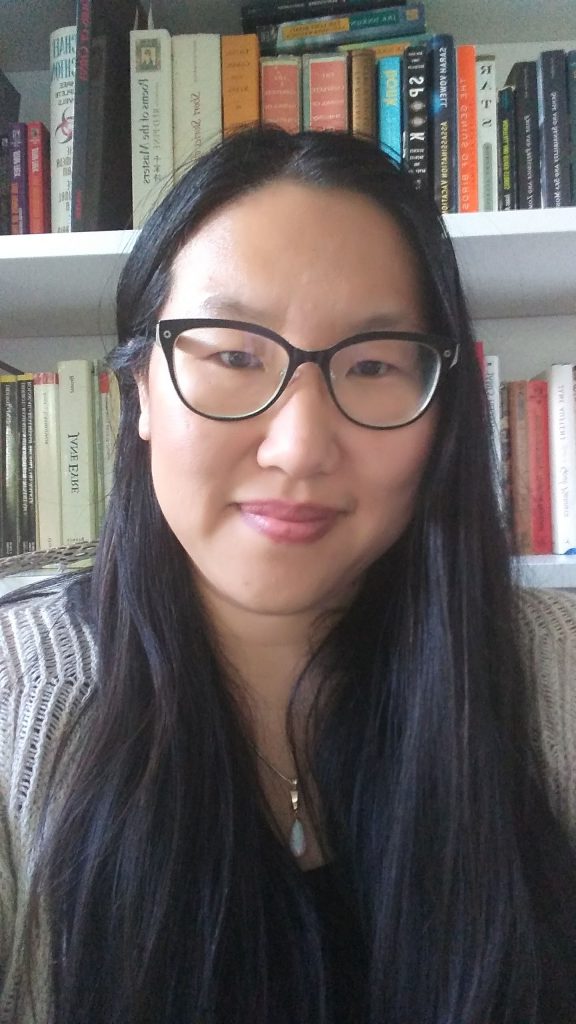
Frances Lu-Pai Ippolito is an emerging Chinese American writer in Portland, Oregon. When she’s not spending time with her children in the outdoors, she’s working on short stories with diverse characters in unusual situations of horror, sci-fi, magical realism, or whatever genre-bending she can get away with. Her work was recently featured in the Ooligan Press Writers of Color Showcase 2020 in Portland, Oregon.
You may like
-
Joe Bob’s Christmas Carnage: A Bloody Good Holiday Special Fri. December 13th – 9pm ET!
-
Dirty Clean Sweep, a Short Story by Jennifer Weigel
-
The Thing in Review, Movie 1, Movie 2 and the Board Game
-
Zombie Vegetable Takeover: a Review of the Bunnicula Series by James Howe
-
Betty Lou’s Treasure Trove: Mannequin Horror Summer Series by Jennifer Weigel, Index & BONUS
-
Betty Lou’s Treasure Trove: Mannequin Horror Summer Series by Jennifer Weigel, Chapter 7
Original Creations
Goodbye for Now, a Short Story by Jennifer Weigel
Published
1 month agoon
March 30, 2025What if ours weren’t the only reality? What if the past paths converged, if those moments that led to our current circumstances got tangled together with their alternates and we found ourselves caught up in the threads?
Marla returned home after the funeral and wake. She drew the key in the lock and opened the door slowly, the looming dread of coming back to an empty house finally sinking in. Everyone else had gone home with their loved ones. They had all said, “goodbye,” and moved along.
Her daughter Misty and son-in-law Joel had caught a flight to Springfield so he could be at work the next day for the big meeting. Her brother Darcy was on his way back to Montreal. Emmett and Ruth were at home next door, probably washing dishes from the big meal they had helped to provide afterward, seeing as their kitchen light was on. Marla remembered there being food but couldn’t recall what exactly as she hadn’t felt like eating. Sandwiches probably… she’d have to thank them later.
Marla had felt supported up until she turned the key in the lock after the services, but then the realization sank deep in her throat like acid reflux, hanging heavy on her heart – everyone else had other lives to return to except for her. She sighed and stepped through the threshold onto the outdated beige linoleum tile and the braided rag rug that stretched across it. She closed the door behind herself and sighed again. She wiped her shoes reflexively on the mat before just kicking them off to land in a haphazard heap in the entryway.
The still silence of the house enveloped her, its oppressive emptiness palpable – she could feel it on her skin, taste it on her tongue. It was bitter. She sighed and walked purposefully to the living room, the large rust-orange sofa waiting to greet her. She flopped into its empty embrace, dropping her purse at her side as she did so.
A familiar, husky voice greeted her from deeper within the large, empty house. “Where have you been?”
Marla looked up and glanced around. Her husband Frank was standing in the doorway to the kitchen, drying a bowl. Marla gasped, her hand shooting to her mouth. Her clutched appendage took on a life of its own, slowly relinquishing itself of her gaping jaw and extending a first finger to point at the specter.
“Frank?” she spoke hesitantly.
“Yeah,” the man replied, holding the now-dry bowl nestled in the faded blue-and-white-checkered kitchen towel in both hands. “Who else would you expect?”
“But you’re dead,” Marla spat, the words falling limply from her mouth of their own accord.
The 66-year old man looked around confusedly and turned to face Marla, his silver hair sparkling in the light from the kitchen, illuminated from behind like a halo. “What are you talking about? I’m just here washing up after lunch. You were gone so I made myself some soup. Where have you been?”
“No, I just got home from your funeral,” Marla spoke quietly. “You are dead. After the boating accident… You drowned. I went along to the hospital – they pronounced you dead on arrival.”
“I don’t know what you’re talking about,” Frank said. “What boating accident?”
“The sailboat… You were going to take me out,” Marla coughed, her brown eyes glossed over with tears.
“We don’t own a sailboat,” Frank said bluntly. “Sure, I’d thought about it – it seems like a cool retirement hobby – but it’s just too expensive. We’ve talked about this, we can’t afford it.”
Marla glanced out the bay window towards the driveway where the small sailboat sat on its trailer, its orange hull reminiscent of the Florida citrus industry, and also of the life jacket Frank should have been wearing when he’d been pulled under. Marla cringed and turned back toward the kitchen. She sighed and spoke again, “But the boat’s out front. The guys at the marina helped to bring it back… after you… drowned.”
Frank had retreated to the kitchen to put away the bowl. Marla followed. She stood in the doorway and studied the man intently. He was unmistakably her husband, there was no denying it even despite her having just witnessed his waxen lifeless body in the coffin at the wake before the burial, though this Frank was a slight bit more overweight than she remembered.
“Well, that’s not possible. Because I’m still here,” Frank grumbled. He turned to face her, his blue eyes edged with worry. “There now, it was probably just a dream. You knew I wanted a boat and your anxiety just formulated the worst-case scenario…”
“See for yourself,” Marla said, her voice lilting with every syllable.
Frank strode into the living room and stared out the bay window. The driveway was vacant save for some bits of Spanish moss strewn over the concrete from the neighboring live oak tree. He turned towards his wife.
“But there’s no boat,” he sighed. “You must have had a bad dream. Did you fall asleep in the car in the garage again?” Concern was written all over his face, deepening every crease and wrinkle. “Is that where you were? The garage?”
Marla glanced again at the boat, plain as day, and turned to face Frank. Her voice grew stubborn. “It’s right here. How can you miss it?” she said, pointing at the orange behemoth.
“Honey, there’s nothing there,” Frank exclaimed, exasperation creeping into his voice.
Marla huffed and strode to the entryway, gathering her shoes from where they waited in their haphazard heap alongside the braided rag run on the worn linoleum floor. She marched out the door as Frank took vigil in its open frame, still staring at her. She stomped out to the boat and slapped her hand on the fiberglass surface with a resounding smack. The boat was warm to the touch, having baked in the Florida sun. She turned back towards the front door.
“See!” she bellowed.
The door stood open, empty. No one was there, watching. Marla sighed again and walked back inside. The vacant house once again enveloped her in its oppressive emptiness. Frank was nowhere to be found.

So I guess it’s goodbye for now. Feel free to check out more of Jennifer Weigel’s work here on Haunted MTL or here on her website.
Today on Nightmarish Nature we’re gonna revisit The Blob and jiggle our way to terror. Why? ‘Cause we’re just jellies – looking at those gelatinous denizens of the deep, as well as some snot-like land-bound monstrosities, and wishing we could ooze on down for some snoozy booze schmoozing action. Or something.
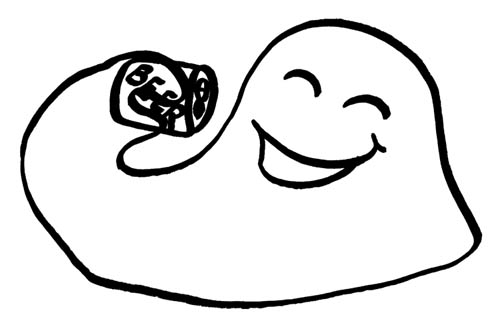
Honestly, I don’t know what exactly it is that jellyfish and slime molds do but whatever it is they do it well, which is why they’re still around despite being among the more ancient organism templates still in common use.
Jellyfish are on the rise.
Yeah, yeah, some species like moon jellies will hang out in huge blooms near the surface feeding, but that’s not what I meant. Jellyfish populations are up. They’re honing in on the open over-fished ocean and making themselves at home. Again.
And, although this makes the sea turtles happy since jellies are a favorite food staple of theirs, not much else is excited about the development. Except for those fish that like to hide out inside of their bells, assuming they don’t accidentally get eaten hanging out in there. But that’s a risk you gotta take when you’re trying to escape predation by surrounding yourself in a bubble of danger that itself wants to eat you. Be eaten or be eaten. Oh, wait…
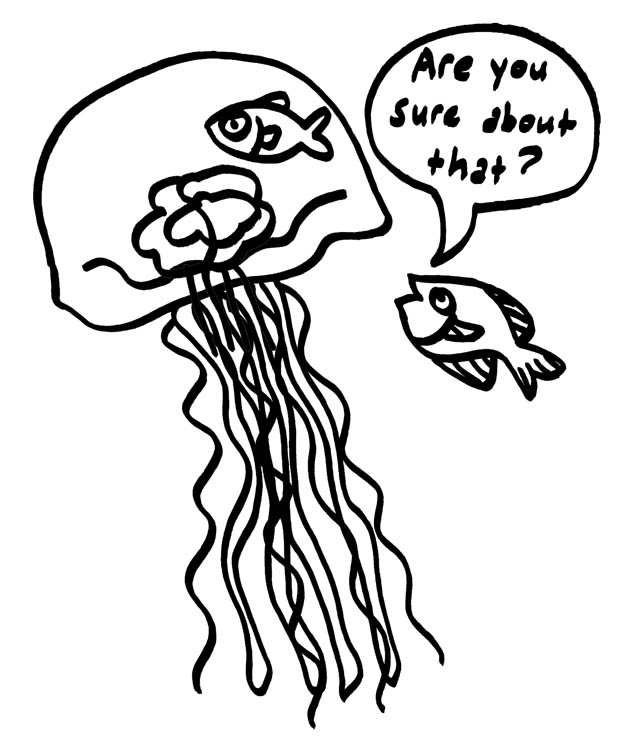
So what makes jellies so scary?
Jellyfish pack some mighty venom. Despite obvious differences in mobility, they are related to anemones and corals. But not the Man o’ War which looks similar but is actually a community of microorganisms that function together as a whole, not one creature. Not that it matters when you’re on the wrong end of a nematocyst, really. Because regardless what it’s attached to, that stings.
Box jellies are among the most venomous creatures in the world and can move of their own accord rather than just drifting about like many smaller jellyfish do. And even if they aren’t deadly, the venom from many jellyfish species will cause blisters and lesions that can take a long time to heal. So even if they do resemble free-floating plastic grocery bags, you’d do best to steer clear. Because those are some dangerous curves.
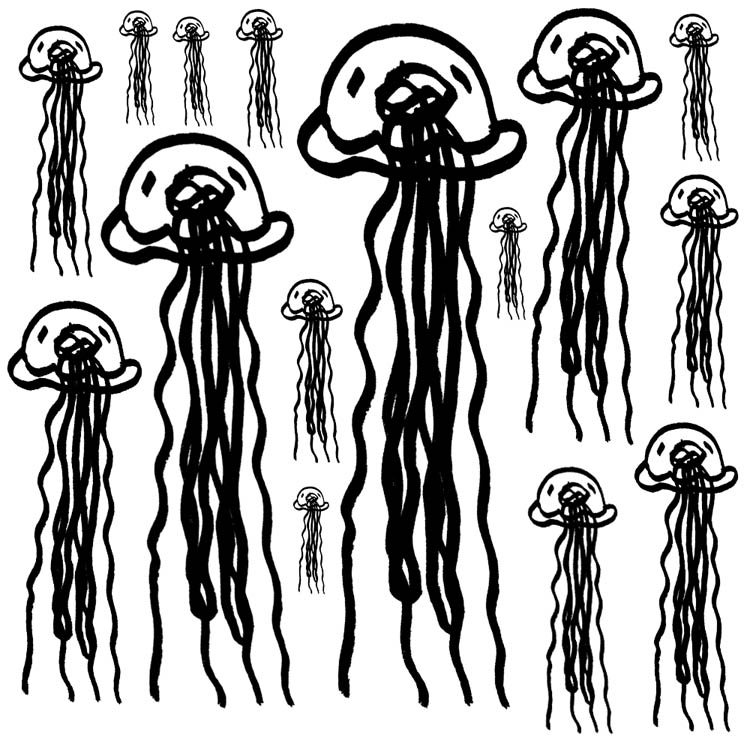
But what does this have to do with slime molds?
Absolutely nothing. I honestly don’t know enough about jellyfish or slime molds to devote the whole of a Nightmarish Nature segment to either, so they had to share. Essentially, this bit is what happened when I decided to toast a bagel before coming up with something to write about and spent a tad too much time in contemplation of my breakfast. I guess we’re lucky I didn’t have any cream cheese or clotted cream…
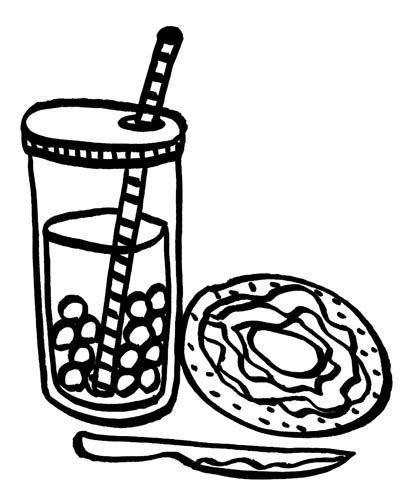
Oh, and also thinking about gelatinous cubes and oozes in the role-playing game sense – because those sort of seem like a weird hybrid between jellies and slime molds, as does The Blob. Any of those amoeba influenced creatures are horrific by their very nature – they don’t even need to be souped up, just ask anyone who’s had dysentery.
And one of the most interesting thing about slime molds is that they can take the shortest path to food even when confronted with very complex barriers. They are maze masterminds and would give the Minotaur more than a run for his money, especially if he had or was food. They have even proven capable of determining the most efficient paths for water lines or railways in metropolitan regions, which is kind of crazy when you really think about it. Check it out in Scientific American here. So, if we assume that this is essentially the model upon which The Blob was built, then it’s kind of a miracle anything got away. And slime molds are coming under closer scrutiny and study as alternative means of creating computer components are being explored.
Jellies are the Wave of the Future.
We are learning that there may be a myriad of uses for jellyfish from foodstuffs to cosmetic products as we rethink how we interact with them. They are even proving useful in cleaning up plastic pollution. I don’t know how I feel about the foodstuff angle for all that they’ve been a part of various recipes for a long time. From what I’ve seen of the jellyfish cookbook recipes, they just don’t look that appealing. But then again I hate boba with a passion, so I’m probably not the best candidate to consider the possibility.
So it seems that jellies are kind of the wave of the future as we find that they can help solve our problems. That’s pretty impressive for some brainless millions of years old critter condiments. Past – present – perpetuity! Who knows what else we’d have found if evolution hadn’t cleaned out the fridge every so often?
Feel free to check out more Nightmarish Nature here.
Original Series
Lucky Lucky Wolfwere Saga Part 4 from Jennifer Weigel
Published
2 months agoon
March 17, 2025Continuing our junkyard dawg werewolf story from the previous St. Patrick’s Days… though technically he’s more of a wolfwere but wolfwhatever. Anyway, here are Part 1 from 2022, Part 2 from 2023 and Part 3 from 2024 if you want to catch up.
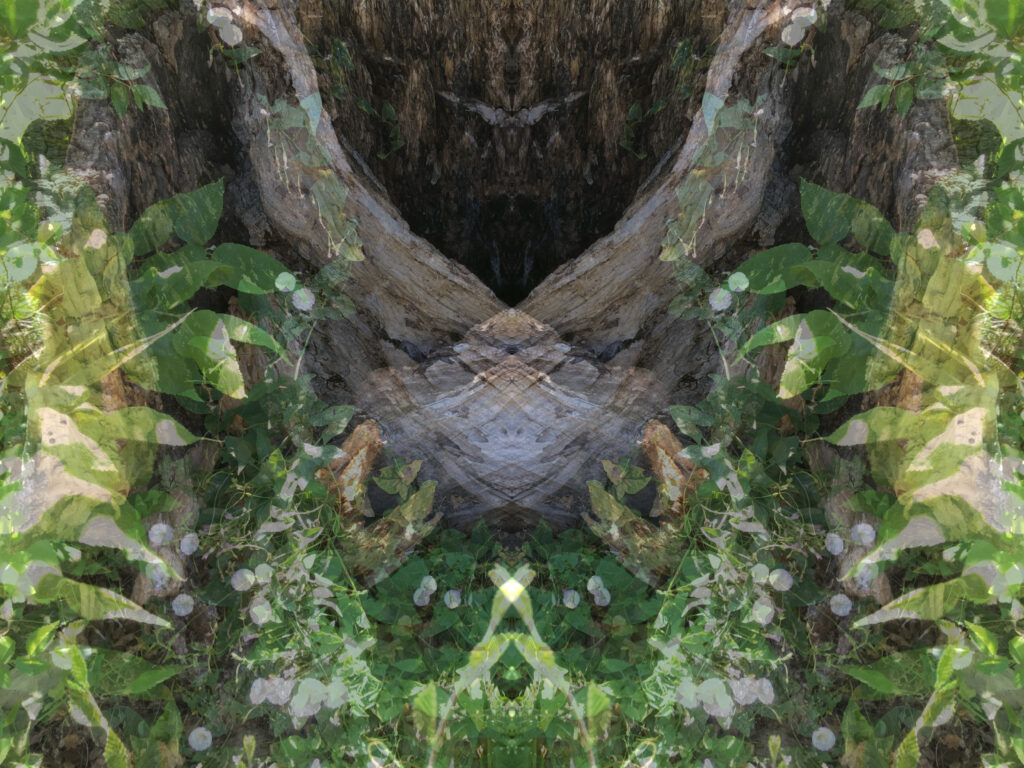
Yeah I don’t know how you managed to find me after all this time. We haven’t been the easiest to track down, Monty and I, and we like it that way. Though actually, you’ve managed to find me every St. Patrick’s Day since 2022 despite me being someplace else every single time. It’s a little disconcerting, like I’m starting to wonder if I was microchipped way back in the day in 2021 when I was out lollygagging around and blacked out behind that taco hut…
Anyway as I’d mentioned before, that Scratchers was a winner. And I’d already moved in with Monty come last St. Patrick’s Day. Hell, he’d already begun the process of cashing in the Scratchers, and what a process that was. It made my head spin, like too many squirrels chirping at you from three different trees at once. We did get the money eventually though.
Since I saw you last, we were kicked out of Monty’s crap apartment and had gone to live with his parents while we sorted things out. Thank goodness that was short-lived; his mother is a nosy one for sure, and Monty didn’t want to let on he was sitting on a gold mine as he knew they’d want a cut even though they had it made already. She did make a mean brisket though, and it sure beat living with Sal. Just sayin.
Anyway, we finally got a better beater car and headed west. I was livin’ the dream. We were seeing the country, driving out along old Route 66, for the most part. At least until our car broke down just outside of Roswell near the mountains and we decided to just shack it up there. (Boy, Monty sure can pick ‘em. It’s like he has radar for bad cars. Calling them lemons would be generous. At least it’s not high maintenance women who won’t toss you table scraps or let you up on the sofa.)
We found ourselves the perfect little cabin in the woods. And it turns out we were in the heart of Bigfoot Country, depending on who you ask. I wouldn’t know, I’ve never seen one. But it seems that Monty was all into all of those supernatural things: aliens, Bigfoot, even werewolves. And finding out his instincts on me were legit only added fuel to that fire. So now he sees himself as some sort of paranormal investigator.
Whatever. I keep telling him this werewolf gig isn’t all that it’s cracked up to be, and it doesn’t work like in the movies. I wasn’t bitten, and I generally don’t bite unless provoked. He says technically I’m a wolfwere, to which I just reply “Where?” and smile. Whatever. It’s the little things I guess. I just wish everything didn’t come out as a bark most of the time, though Monty’s gotten pretty good at interpreting… As long as he doesn’t get the government involved, and considering his take on the government himself that would seem to be a long stretch. We both prefer the down low.
So here we are, still livin’ the dream. There aren’t all that many rabbits out here but it’s quiet and the locals don’t seem to notice me all that much. And Monty can run around and make like he’s gonna have some kind of sighting of Bigfoot or aliens or the like. As long as the pantry’s stocked it’s no hair off my back. Sure, there are scads of tourists, but they can be fun to mess around with, especially at that time of the month if I happen to catch them out and about.
Speaking of tourists, I even ran into that misspent youth from way back in 2021 at the convenience store; I spotted him at the Quickie Mart along the highway here. I guess he and his girlfriend were apparently on walkabout (or car-about) perhaps making their way to California or something. He even bought me another cookie. Small world. But we all knew that already…
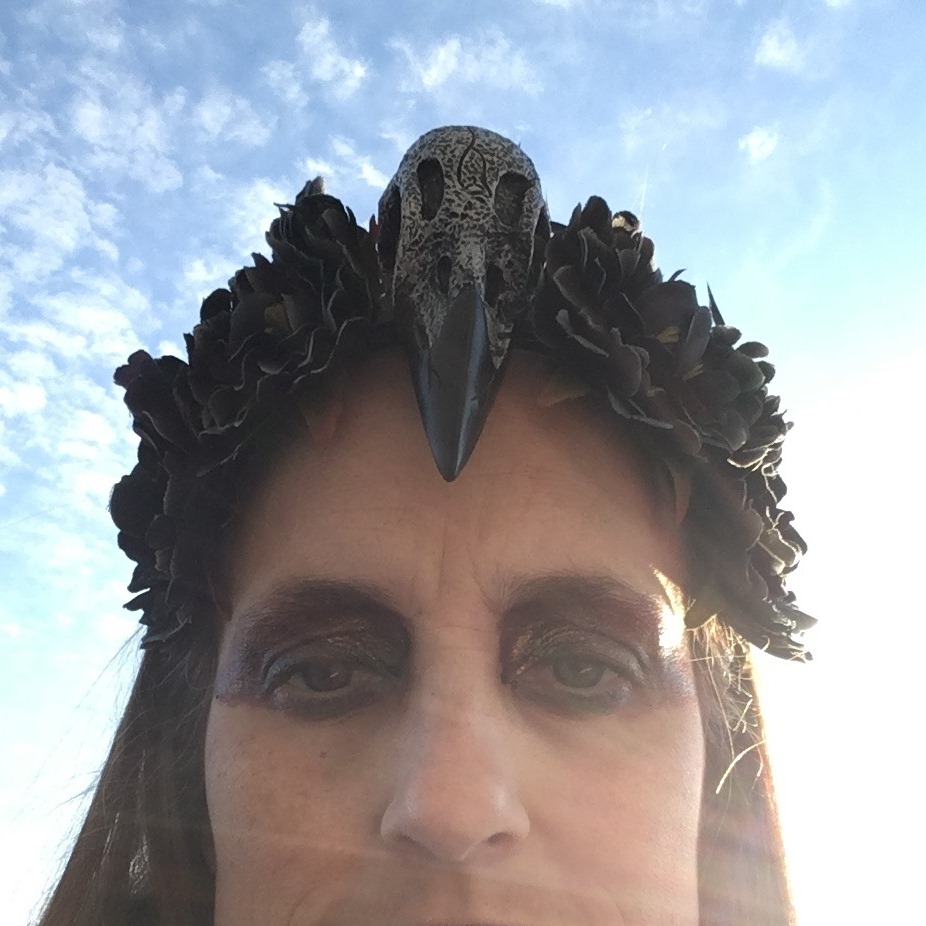
If you enjoyed this werewolf wolfwere wolfwhatever saga, feel free to check out more of Jennifer Weigel’s work here on Haunted MTL or here on her website.






